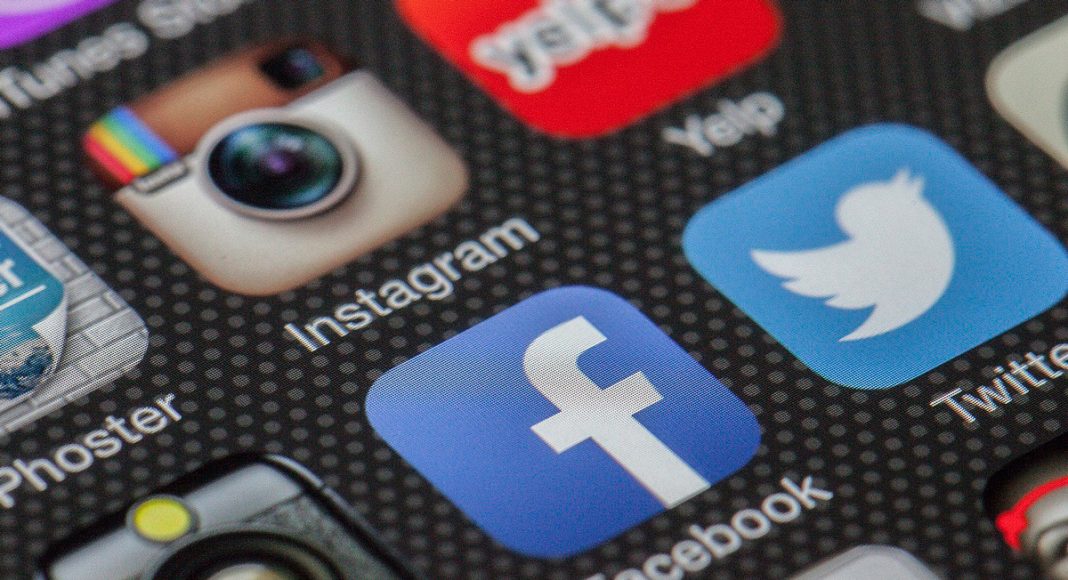Many cannabis users and fans follow their favorite canna-accounts on social media, but it’s not as simple as looking up your local fashion blogger or liquor brand. Facebook may be slowly peeling back the layers of prohibition just like the rest of society, but the power it wields over the reach of any given person’s brand or message can be astounding — it’s not always used for good.
Despite a reluctance to censor dangerous hate speech, Facebook and by default, Instagram, are plenty able to hinder sex workers, cannabis organizations, and even Black Lives Matter activists with their policies. This makes little sense, and has made plenty of people angry enough to leave the platforms, but given the degree to which we rely on social media for work, friendship, and even news and connection, there is a distinct cost to opting out.
RELATED: Is Facebook Blocking Marijuana-Related Searches?
In 2018 Marijuana Moment wrote, “Algorithms often block promotions for news articles or other noncommercial posts that merely mention “marijuana” or “cannabis,” a situation that often requires lengthy appeals processes to clear automatically flagged content that doesn’t actually violate terms of service.”
Though there is talk of loosening the reins, it’s mostly hearsay as Facebook doesn’t comment too much directly on their plans for cannabis or advertising policies in general.
We asked Cannaclusive co-founder and cannabis marketing pioneer Mary Pryor for some clarification. She says she isn’t as against the slow rate with which Facebook and Instagram progress on cannabis because of one important caveat — the illegality prevents the pay-to-play vibes that anyone else has to flex to get any traction on social media.
She told us, “Funny enough, I actually enjoy the provisions Facebook and Instagram place on cannabis brands. Relying on paid media and paid amplification is actually killing most publisher and consumer packaged goods brands on social. Those CPM [cost per mile] and CPC [cost per click] rates are quite expensive and display very minimal results.”
RELATED: Facebook Considers Lifting Marijuana Restrictions For Companies
So while cannabis brands and companies can exist on social media, they aren’t subject to the same monetized game that other brands have to play. Pryor continued, “It takes a rather large budget for large brands to run full paid campaigns (over 50K across all of social). Utilizing influencers in authentic ways within the cannabis scene can be useful in the interim. And I think that brands need to drive more Into inclusive digital marketing organically before tapping into paid amplification in the first place.”
Pryor’s logic is pretty sound, there’s too many variables between states and without federal legalization. Cannabis is too small of an industry with too much to learn to dive right into Madison Avenue type of advertising, for the time being.
Wink products bring CBD into the hands of waiting consumers with unique products for all types of dosing. Their founder, Stacy Verbiest, has been vocal about what CBD can do for people with illness and pain, and her take comes from the experience of trying to reach consumers in spite of Facebook’s tough policies.
“The government will not allow companies to promote cannabis products through social media,” Verbiest told us. “Hemp products are federally legal, but since hemp is a species of cannabis, it is still prohibited. As a brand, Wink has developed a high level of professionalism online so our accounts will not be pulled. We do not cater to an underage audience and our posts are educational, not promotional and we do not advertise any products.”
It’s truly a shame that kids can be exposed to almost anything on the internet without proper monitoring, but people are worried about cannabis in particular because of decades of stigma. Cannabis, and in particular CBD, holds potential to help issues that children suffer from too, something that alcohol and tobacco could never do, despite that content regularly reaching their eyes.
Verbiest said, “Personally, I think the FDA is prohibiting the public from learning the medicinal benefits cannabis has to offer. The best channels to educate our country on cannabis is through social media and the press. Without these platforms, it is difficult for the consumer to know how to purchase and consume safe products.”
Cannabis advertising is already here in many forms, but it’s mainstream future is inevitably huge, whether the FDA or Facebook come around now or down the road, they’re going to have little choice.


